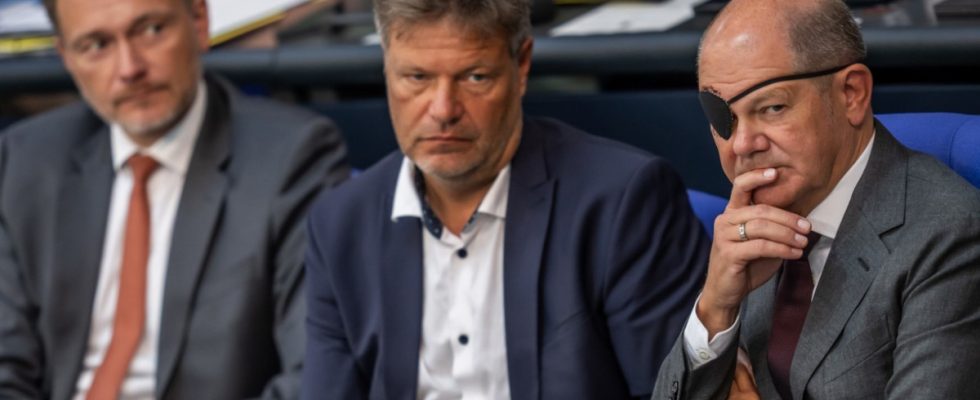Olaf Scholz said two remarkable sentences in the Bundestag budget debate this week. After three years of crisis, according to the chancellor, the traffic light government’s draft budget represents “a return to normality and a solidly financed state.” Yes, even more: “We invest without making cuts in the wrong place.”
Both sentences are so important because almost everything about them is wrong. The state will not be solidly financed in 2024, nor can there be talk of normality in view of high inflation, the threat of energy bottlenecks and the huge challenges in connection with the country’s climate-friendly conversion. Measured against the necessities, investment planning up to 2027 is far too timid, while at the same time the wrong programs are being cut. Or how should one make sense of the fact that the traffic light is massively reducing the funds for voluntary services or student loans, for example, but at the same time wants to continue to pay out 65 billion euros a year in climate-damaging subsidies?
The preparation of the budget was messed up from the start because, after years of seemingly unlimited financial blessings, the specialist departments had entered the negotiations with a make-a-wish attitude, instead of agreeing on priorities and posteriorities together. At the same time, Finance Minister Christian Lindner insisted on compliance with the debt brake and the ban on tax increases that he had ordered. So here two trains raced towards each other for months, while Bahn boss Scholz watched idly.
The occasion is long forgotten, but the subsidy remains
The result is a budget that is being cut wildly in hundreds of places, and with which the coalition is alienating millions of people. That would perhaps be acceptable if at least enough money came into the coffers to pay for all the necessary investments. But not even that is the case because the major items remain untouched. Example diesel privilege: Decades ago, the reason why diesel fuel is taxed less than petrol was that German freight forwarders needed support in the face of tough international competition. Nobody talks about that anymore – but the subsidy stayed. Annual costs: a good eight billion euros.
Many structural problems that will paralyze economic development in the next few years and thus also burden the budget remain unsolved, from dilapidated bridges and schools to a lack of fiber optic cables and high energy prices. All this does not mean that the debt brake is obsolete and that the state should continue to distribute pumped money across the country with the confetti cannon, as was necessary during the pandemic and after the Russian gas supply freeze. It does mean, however, that the Greens and FDP in particular must finally take off their ideological blinders and develop a common understanding of financial necessities and priorities: What is a subsidy anyway? Which spending programs are future-oriented and require more funds, which are dispensable? Which taxes should be increased so that the burden can be reduced elsewhere? How do you stop the ever-increasing overloading of the budget with social security and interest costs?
However, the draft budget for 2024 does not answer any of these questions. He’s a missed opportunity.

